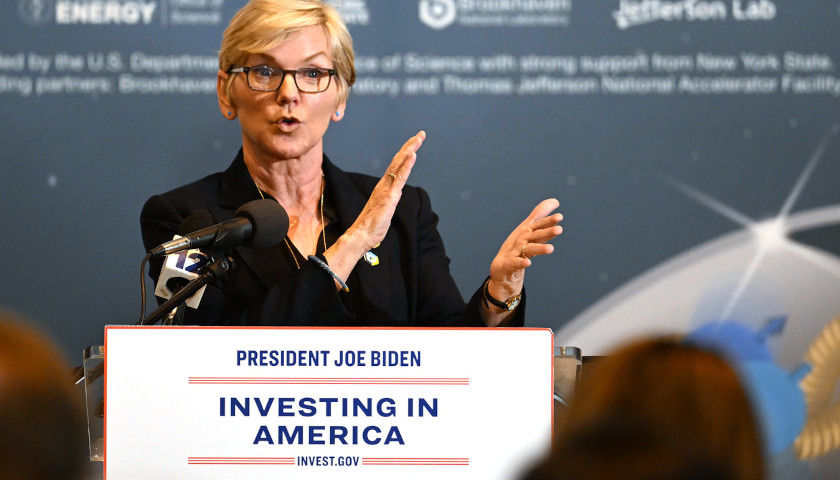The Arizona Corporation Commission (ACC), an independent body with powers derived from constitutional authority, ultimately opted to reopen the APS rate case to enhance the evidentiary record. During the February rate case, the ACC approved this controversial fee, intended to cover grid access costs for solar customers. Its last-minute introduction during the hearing sparked allegations of discrimination and due process violations.
In the APS case, the ACC voted to approve a rate hike for customers earlier this year on February 22. It was approved 4-1 along party lines with the Democrat Commissioner Anna Tovar as the sole “no” vote. Chairman Jim O’Connor (R) seemed to allude on Arizona Horizon that this complex case, first filed on June 1, 2022, was handled in a meticulous manner.
After a deliberate 21-month process involving 28 intervening parties, over 100 letters from constituents, testimony from 50 witnesses, and an eleven-hour hearing, the Arizona Corporation Commission positioned itself to nail this case. Criticism from both the left and the right emerged almost immediately, particularly concerning the solar grid access charge.
Attorney Autumn Johnson, representing AriSEIA, asserted in court documents that the Recommend Opinion and Order unexpectedly introduced a new solar-specific charge for rooftop solar customers without prior discussion, public notice, or supporting evidence. This abrupt inclusion, Johnson argues, violates AriSEIA’s due process rights as it was unendorsed by any party or witness during the proceedings. Furthermore, she said, APS had explicitly stated in its solar cost of service study that there was no justification for imposing any new solar-specific tax or charge, reinforcing the absence of any prior discussion or opposition to such a charge among the participants.
Attorney General Kris Mayes, intervened in the case, potentially enabling the ACC to correctly resolve the APS rate case.
Mayes forcefully criticized the ACC in her Application for Rehearing in early March. She reminded the ACC that Arizona law mandates their primary duty is to benefit consumers. Mayes also claimed that the ACC had approved both a discriminatory rate and the System Resource Benefits (SRB) in a way that compromised the due process rights of involved parties. Mayes is a former commissioner on the Arizona Corporation Commission.
Ultimately, Mayes stated her belief that the solar fee unfairly penalizes homeowners with solar panels, and that the ACC did not provide Arizonans proper notice to voice their concerns on this issue. In her application, she presented the ACC with two options: either remove the solar charge or grant a rehearing to further develop the evidentiary record. Mayes also warned that she would appeal the case if the ACC failed to take action. The Attorney General’s arguments seem to mirror Johnson’s arguments made during the hearing.
One constituent expressed his frustration to The Arizona Sun Times, stating that a lengthy process doesn’t automatically ensure thoroughness, fairness, or constitutional adherence. He criticized the Arizona Corporation Commission as being a rubber stamp for utility companies and emphasized that it cannot afford to mishandle these cases, whether the error was unintentional or not.
Dom Shelton, a political independent who owns Refract Solar, voiced his approval to The Sun Times that the commission decided to reopen the rate case to address the solar issue. Shelton praised Attorney General Kris Mayes for her efforts to challenge monopolies, asserting that it was the right course of action. He frequently contributes comments during ACC cases and expressed eagerness to have his voice heard.
The APS hearing is scheduled for November, and the deadline to intervene in this case is July 19th.
– – –
Christy Kelly is a reporter at The Arizona Sun Times and The Star News Network. Follow Christy on Twitter / X. Email tips to [email protected].








